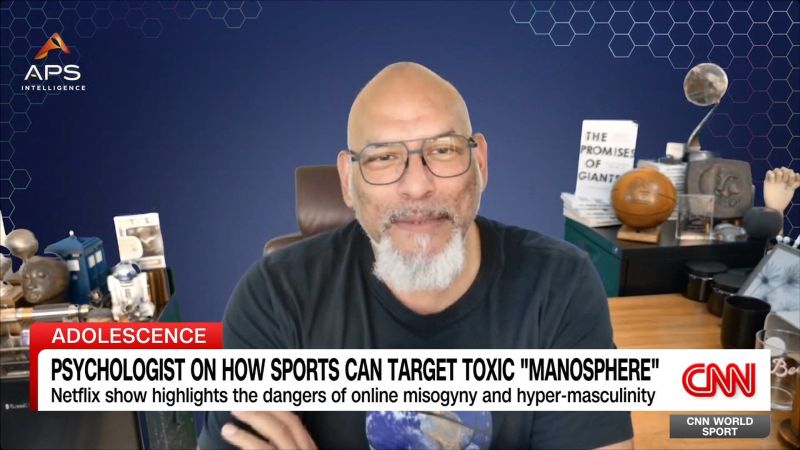The article delves into the narrative surrounding the character Jamie Miller from the British drama series "Adolescence," whose storyline has sparked discussions about the isolation and radicalization of young men. It highlights the potential role that sports could play in addressing the issues of toxic masculinity and the "manosphere," as explained by psychologist John Amaechi. By focusing on a fictional character’s troubling journey, the piece aims to shed light on real societal concerns regarding male disaffection and the dangers of online radicalization.
Purpose of the Article
The intent appears to be to raise awareness about the psychological issues faced by young men and how societal structures, including sports, can provide positive outlets instead of negative influences. The article suggests that sports could serve as a remedy to the toxic environments that some young men find themselves in, advocating for a shift towards healthier forms of masculinity.
Public Perception
By connecting the character's struggles to broader societal issues, the article seeks to create a sense of urgency around the conversation regarding male mental health. This approach may evoke empathy among readers and encourage discussions in various communities about the importance of supportive environments for young men.
Potential Information Gaps
While the article effectively discusses the character's backstory and the psychologist's insights, it may underrepresent the complexity of these issues by simplifying the solutions to merely promoting sports. This could lead to a perception that the issues at hand can be easily resolved without considering other systemic factors at play.
Manipulative Elements
There could be a degree of manipulation in the framing of the story, particularly in how it emphasizes the character's descent into violence as a way to highlight the consequences of toxic masculinity without equally addressing the broader societal failings that contribute to such narratives. The language used may evoke strong emotions, steering readers towards a particular viewpoint.
Reliability of the Information
The information presented seems to be grounded in the context of a fictional narrative, which can complicate its reliability in discussing real-world applications. The portrayal of psychological insights may not fully encompass the complexities of mental health issues among young men. Although it draws from expert opinion, the blend of fiction and real-world implications requires critical scrutiny.
Wider Implications
The article could influence public discourse around masculinity and mental health, potentially inspiring initiatives aimed at integrating sports as a tool for social improvement. It may resonate particularly with communities concerned about gender issues, mental health advocacy, and youth support programs.
Impact on Market Dynamics
While this article primarily addresses societal concerns, it may indirectly affect sectors related to mental health resources, sports programs, and community initiatives. Companies involved in promoting healthy masculinity or youth outreach might find relevance in the themes discussed.
Geopolitical Relevance
In a broader context, this narrative touches on global discussions about gender roles and mental health, aligning with current trends and movements addressing these issues worldwide. It reflects ongoing dialogues about societal expectations of masculinity and their implications in various cultures.
Use of Artificial Intelligence
There is no direct indication that AI was used in creating this article, but the structured presentation of complex psychological insights suggests a potential for AI support in synthesizing information. If AI were involved, it might have helped frame the discussion around sports and masculinity effectively.
The analysis highlights the article's potential to manipulate public perception through emotional storytelling while addressing crucial societal issues. The reliability of the information hinges on its fictional context, necessitating a cautious approach to interpretation.
